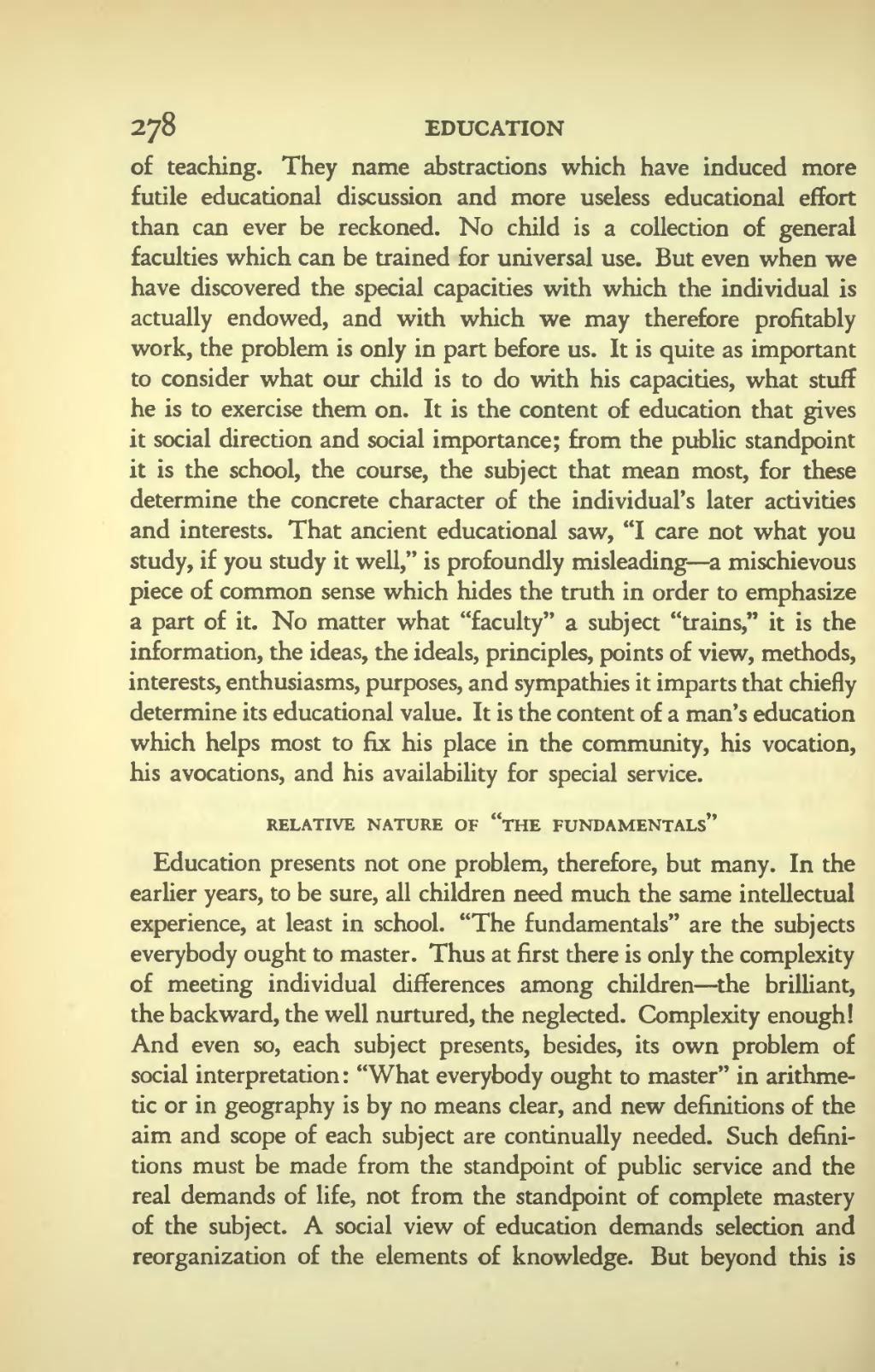of teaching. They name abstractions which have induced more futile educational discussion and more useless educational effort than can ever be reckoned. No child is a collection of general faculties which can be trained for universal use. But even when we have discovered the special capacities with which the individual is actually endowed, and with which we may therefore profitably work, the problem is only in part before us. It is quite as important to consider what our child is to do with his capacities, what stuff he is to exercise them on. It is the content of education that gives it social direction and social importance; from the public standpoint it is the school, the course, the subject that mean most, for these determine the concrete character of the individual's later activities and interests. That ancient educational saw, "I care not what you study, if you study it well," is profoundly misleading—a mischievous piece of common sense which hides the truth in order to emphasize a part of it. No matter what "faculty" a subject "trains," it is the information, the ideas, the ideals, principles, points of view, methods, interests, enthusiasms, purposes, and sympathies it imparts that chiefly determine its educational value. It is the content of a man's education which helps most to fix his place in the community, his vocation, his avocations, and his availability for special service.
RELATIVE NATURE OF "THE FUNDAMENTALS"
Education presents not one problem, therefore, but many. In the earlier years, to be sure, all children need much the same intellectual experience, at least in school. "The fundamentals" are the subjects everybody ought to master. Thus at first there is only the complexity of meeting individual differences among children—the brilliant, the backward, the well nurtured, the neglected. Complexity enough! And even so, each subject presents, besides, its own problem of social interpretation: "What everybody ought to master" in arithmetic or in geography is by no means clear, and new definitions of the aim and scope of each subject are continually needed. Such definitions must be made from the standpoint of public service and the real demands of life, not from the standpoint of complete mastery of the subject. A social view of education demands selection and reorganization of the elements of knowledge. But beyond this is
